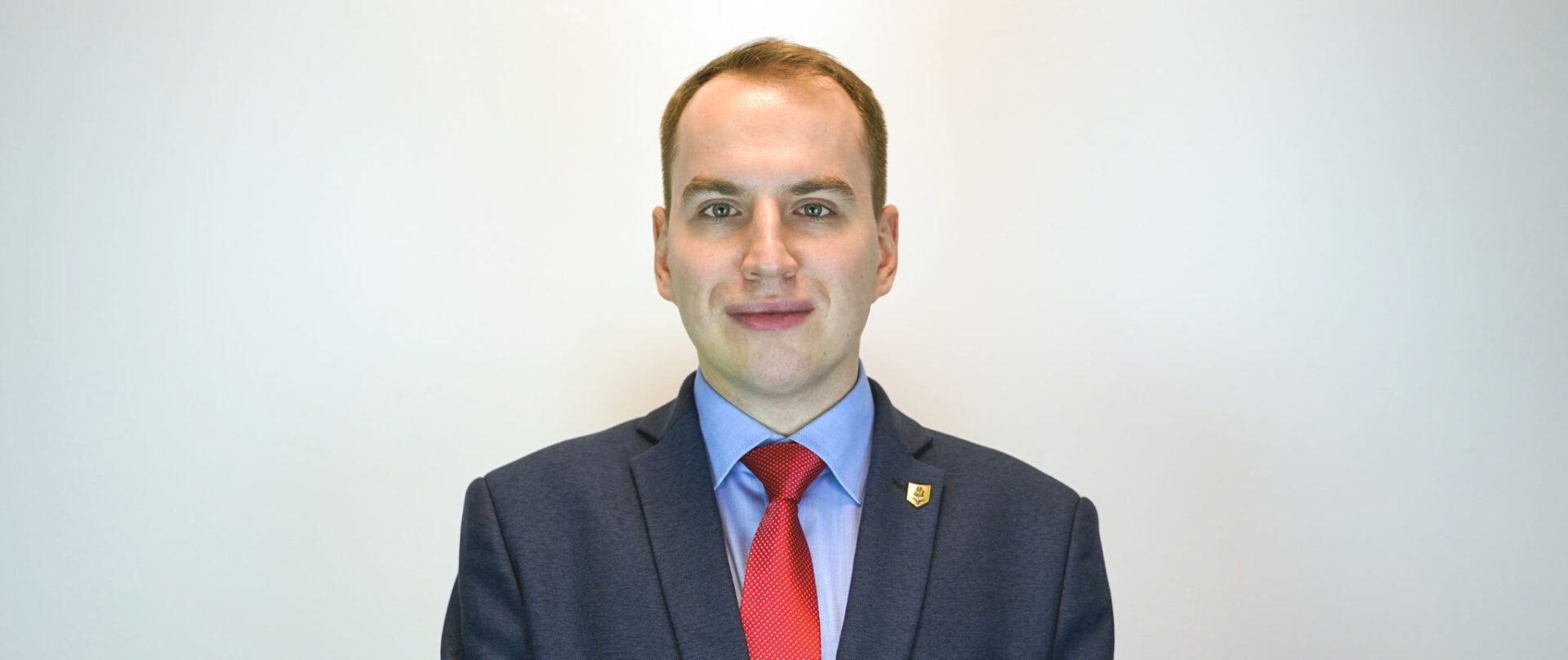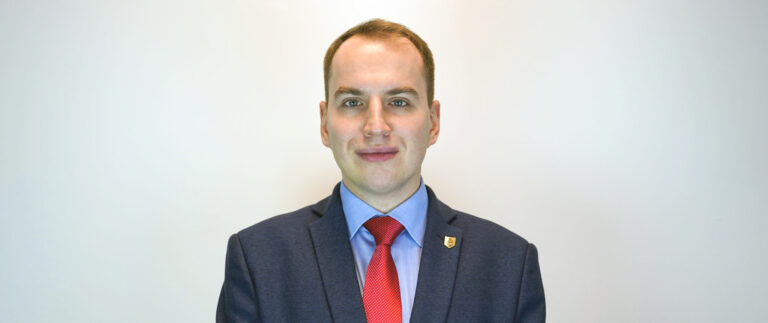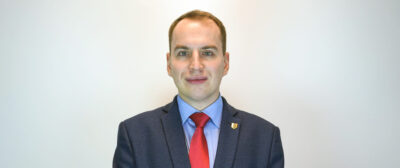Three years. That’s the time Adam Andruszkiewicz needed to be promoted from a regular MP from Białystok, eastern Poland, to the Secretary of State in the Ministry of Digititalization. Andruszkiewicz is a debutant in the Polish Parliament. A 28-year-old politician with roots in youth nationalist groups such as the National Radical Camp (in Polish: Obóz Narodowo-Radykalny – ONR) or the All-Polish Youth (Młodzież Wszechpolska), was known as a nationalist full of anger when it comes to the European Union or immigrants, but with great understanding for Belarus and Russia. Since the end of December he is the Deputy Minister in Polish government.
“The future is in such countries as Poland and Belarus”
In December 2016, Andruszkiewicz, already as the vice-president of the Parliamentary Committee for Communication with Poles Abroad, traveled to Minsk. The aim was to warm up relations with Belarus. Accompanied by Stanislaw Karczewski, the Marshal of the Senate , he met Alexander Lukashenko. Andruszkiewicz talked about rebuilding dialogue between Poland and Belarus and announced further visits. Upon his return, he started heading the parliamentary team for the Polish-Belarusian cooperation. “We will not allow ourselves to be divided between our eastern and western opponents. The future is in such countries as Poland and Belarus” – said Andruszkiewicz in the Polish parliament.
In 2017 alone, Andruszkiewicz made three foreign visits as an MP, and each time his destination was Belarus. He chaired the Polish economic delegations to Minsk, met with the Polish community and the vice-chairman of the House of Representatives of Belarus.
The issue of trade between Poland and Russia was also close to Andruszkiewicz. When – during the NATO summit in Warsaw and World Youth Days in Krakow in July 2016 – the Polish government, suspended local border traffic with Russia and Ukraine, and later only restored it with Ukraine, Andruszkiewicz convened a press conference. He called for the Kaliningrad Oblast to be covered anew by the local border traffic regulations. “The explanation that local border traffic is closed for security reasons, due to the terrorist threat, does not fully convince us” – said Andruszkiewicz.
“Our man is doing lobbying”
This speech drew the attention of David Berezicki, the leader of the pro-Russian organization Camp of Great Poland (Obóz Wielkiej Polski), who organized demonstrations in Poland supporting the Donetsk People’s Republic. Berezicki was a liaison officer of Alexander Usovsky in Poland – a Belarusian activist, initiator and founder of many anti-Ukrainian, anti-EU demonstrations and speeches in V4 countries. Thanks to CyberHunta and Cyber Alliance activists who broke into Usovsky’s mailbox and his Facebook profile, public opinion learned the content of his conversations with leaders and activists of pro-Russian groups in V4 countries. This was the first so tangible proof that there are Russians behind many extreme right-wing groups operating in Europe (read about the activity of Alexander Usovsky in our stories: here and here).
A piece of such correspondence from August 2016, between Berezicki and Usovsky, was described by Marcin Rey on his website “Russian V Column in Poland”. It concerned the conversation Berezicki was supposed to have had with “one of the MPs of Kukiz ’15” (the group from which Andruszkiewicz was running in elections to the Polish parliament). Due to the correspondence, Berezicki and MP of Kukiz ’15 were planning to establish a Chamber of Commerce “Eastern Institute III Polish-Eastern Chamber of Commerce”, which would make it possible to avoid sanctions and sell Polish products to the Russian and Belarusian markets. Berezicki sent Usovsky a link to an online publication to prove that there were politicians in the Polish Parliament who could look at the idea with a favourable eye. The article shared included a quote from Adam Andruszkiewicz’ speech, in which he talked with concern about the trade between Poland and Russia. Berezicki wrote: “Our man is doing lobbying” (original: “Nash cieloviek diela jet lobbing”).
However, the idea failed, Usovski was not convinced. He replied by e-mail that he prefered to earn money from political PR rather than from “organizing Russian certificates for the money of Polish food producers”.
Even before he started taking care of Polish-Belarusian relations on behalf of the parliamentary team, Andruszkiewicz took part in conferences organized by the Embassy of Belarus and the Polish-Belarusian Chamber of Commerce and Industry in 2016. In 2015, together with a colleague from the parliament, Robert Winnicki, the leader of the National Movement, they invited Roberto Fiore, the leader of the nationalist party Forza Nuova, to the parliament. Fiore, apart from maintaining numerous contacts with the representatives of nationalist and pro-Russian groups throughout Europe — according to Marcin Rey — also visited Belarus at the invitation of Belarusian scientists and columnists.
Now, in the Ministry of Digitalization, Adam Andruszkiewicz will be responsible for “the implementation of digital services through social networking sites, convincing Polish citizens to use e-services, as well as acting for the development of the still digitally limited eastern regions of Poland and dealing with the subject of 5G networks”.
Konrad Szczygieł is an investigative journalist at FRONTSTORY.PL. Previously, he was a reporter at Superwizjer TVN and OKO.Press. Since 2016, he has worked with Fundacja Reporterów (Reporters Foundation). He was shortlisted for a Grand Press award (2016, 2021) and an Andrzej Woyciechowski award (2021). He is based in Warsaw.







